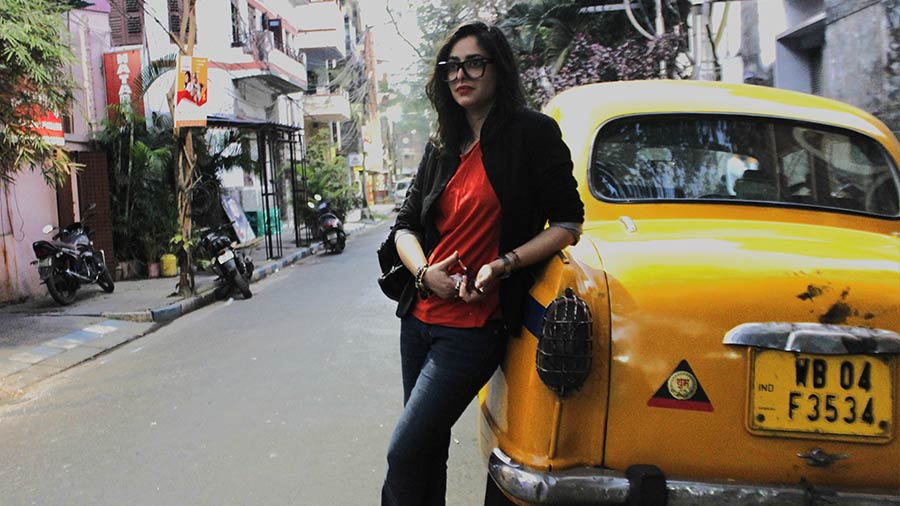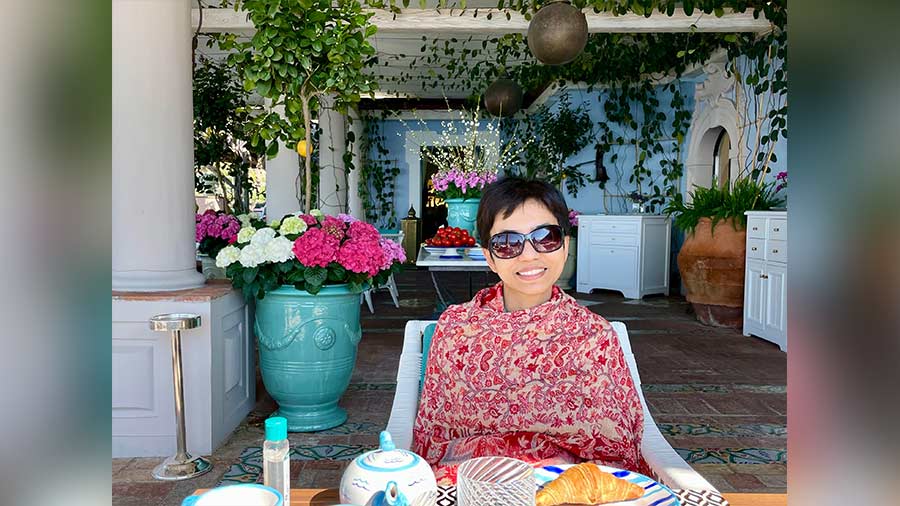A “cathartic urge” in her early 30s led Aparajita Banerjee on a road where she was oblivious to what lay ahead of her. But, she trusted her instinct and her destiny and gave up on a comfortable life in Australia to come back home to Kolkata. Having lived across the UK, Bahrain and Australia, Banerjee, 38, returned to square one and founded Astrit Research and Advisory Services in 2019, which has since become a leading service provider to private and public enterprises in the domains of market research and analysis, project management and risk management, among other verticals.
My Kolkata caught up with Banerjee to discuss her time abroad, what brought her back, the vision for Astrit, her connection to the Tagore family and more. Edited excerpts from the conversation follow.
My Kolkata: Where were you born and raised and when did you move abroad?
Aparajita Banerjee: I was born in Howrah, but spent the first couple of years of my life between West Bengal and Odisha, where my paternal grandparents had settled. In 1986, my father decided to pursue his second master’s at the City University of London. I was two when I left India for the first time to go to the UK with him. We’d come back to Kolkata for a while in 1988, before moving again, this time to Bahrain.
During the Gulf War of 1991, my father moved to Sydney and I attended school there. Tragedy struck when my dad passed away in 1996 and I had to move to India as an Australian citizen, to a city I barely had any recollection of. I lived in Kolkata for four years, completed my middle and senior school at the Calcutta International School and went back to Australia in 2001.
‘Kolkatans are bohemians at heart, they are the catalysts of change for me’
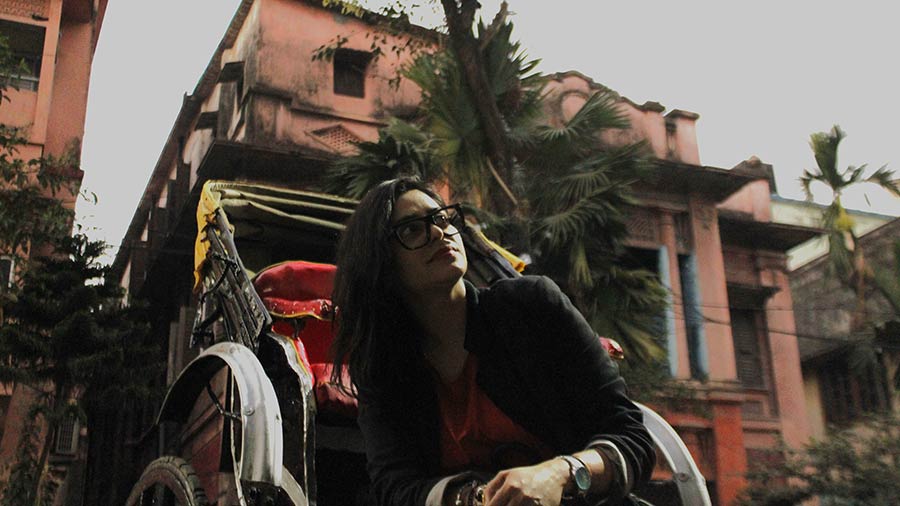
Banerjee picks Gariahat as one of her favourite parts of the city Sourav Nandy
Can you describe why you decided to shift back to Kolkata?
Everyone reaches a point in their life where they need a change to understand their motivations and purpose. For me, this change came in the form of moving back to Kolkata, and giving myself the opportunity to rebuild my belief systems. My 20 years in Australia had come to a surreal and abrupt end in 2017, as I left behind everything I had ever known as an adult in search of something unique, different, almost distant, something I couldn't even articulate, let alone explain, to others back then.
Now that you have relocated to Kolkata, what are the best parts of the city for you? What are your favourite things to do in Kolkata?
I love the charm that lies in the contrast of the old-world north and central Kolkata with the up-and-coming IT hubs in New Town, the distinctive Bengali ethos existing alongside other cultures in a cauldron of European and Mediterranean architecture. But what truly captivates me are the people of Kolkata. They are the quintessential romantics at heart, able to delve deep into intellectual, emotional and spiritual aspects of life with ease and then switch to a state of nonchalance in a matter of moments. I love the way Kolkatans approach politics, philosophy and life in general, with complexity and nuance. The evenings in Kolkata are the best, with street vendors opening their tea and coffee stalls after a siesta and the city buzzing with conversations at every corner. I particularly enjoy Gariahat, with its bazaar full of colours and the vibrant cafes in the area like Tapaste, Wise Owl, Tribe and First Flush.
‘At Astrit, our vision is to diversify into an international think tank on issues connecting India, Australia and the UK’
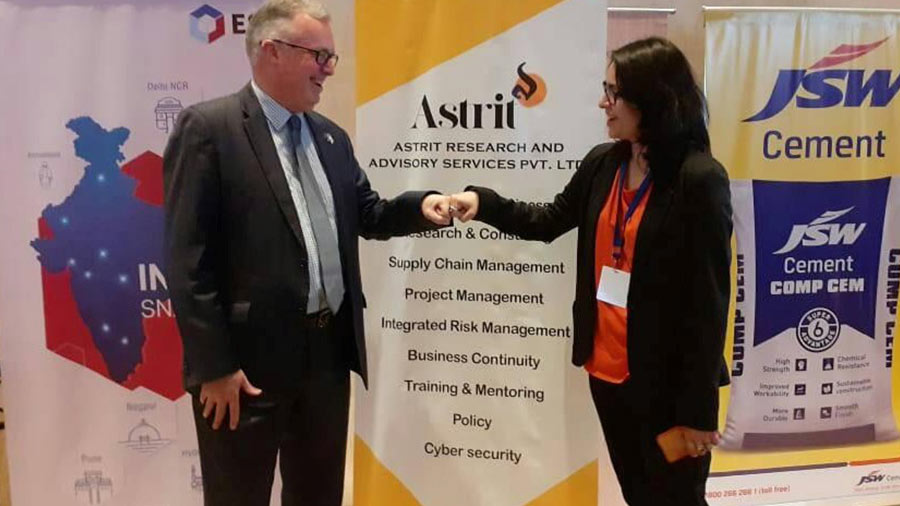
Astrit has played an important role in projects involving Indian and Australian stakeholders in recent years Astrit Research and Advisory Services
Tell us a bit about Astrit. What sort of work has it been involved in so far and how do you see it evolving in the time to come?
Astrit Research and Advisory Services was founded in 2019 to act as a strategic intermediary between Australian and Indian firms in public and private sectors, informing stakeholders of changes in the PESTLE (Political, Economic, Social, Technological, Legal and Environmental) context. The re-establishment of the Australian Consulate General in Kolkata in 2019 helped fill information and communication gaps between Australian and Indian firms, especially in the east.
At Astrit, we’ve been the first point of contact for Australian universities in connecting them with public sector units within the maritime sector of east India. We’ve assisted several Australian universities and Indian private and public enterprises in their applications for government-funded research projects to enable the maritime sector to benefit from best practices and maritime supply chain governance research. In the realm of strategy, we’ve helped universities in Kolkata forge alliances with the supply chain departments of Australian institutions, creating opportunities for collaborative research and upskilling. In healthcare, we’ve facilitated the delivery of online medical services from east India to geriatrics based in Australia. We also played a key role in preparing the strategic roadmap for Australia’s participation at the Bengal Global Business Summit in 2022.
In the long run, our vision is to diversify into an international think tank that provides analyses, recommendations and insights to various stakeholders on issues connecting India, Australia and the UK. I see Astrit gradually moving into the policy space where we’d be able to work alongside governments and NGOs on security and trade apart from expanding our core competencies of upskilling, research, and risk and project management.
You have been involved in leadership roles with the Indo-Australian Chamber of Commerce as well as the ANZ India Business Chamber (ANZIBC). What have been your most significant contributions in these roles?
As chairperson for the Indo-Australian Chamber of Commerce (East India Chapter), I’ve had the privilege of closely engaging and interacting with Australian and Indian diplomats, industry leaders and stakeholders within the business community and advising them on the creation, promotion and facilitation of bilateral trade initiatives. Under my leadership, the East India Chapter was formed in 2022 with the objective to expand the Chamber's initiatives in the eastern and northeastern states of India.
With ANZIBC, I’ve been able to get in place expansion plans for east India as the founder chairperson of the Eastern India Council. I’ve facilitated MoUs between public sector units such as the Kolkata Port Trust and ANZIBC.
The female vigilante in the Tagore family
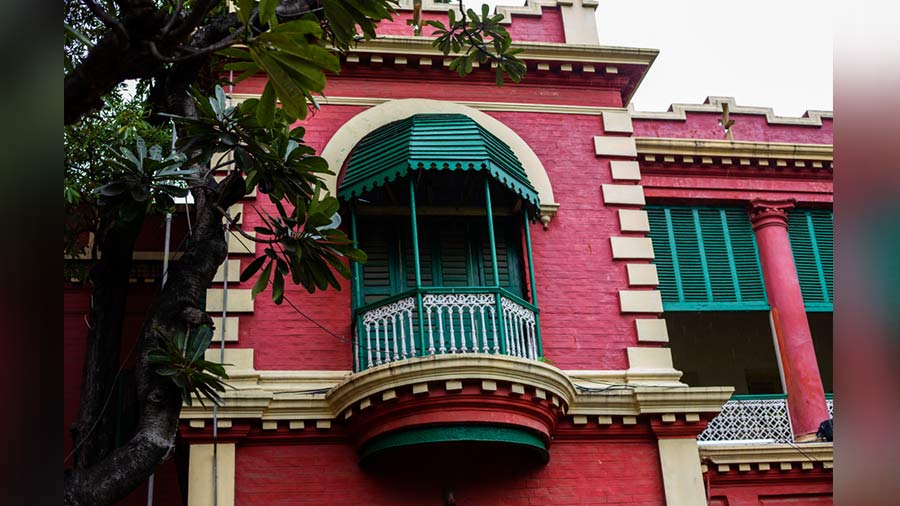
Banerjee is related to the Tagore family on both her paternal and maternal sides TT archives
How are you related to the Tagore family? Any interesting stories about any of the Tagores that are not well-known?
After relocating to Kolkata, I discovered more about my ancestry and lineage through my maternal grandmother, family tree records and stories from other family members. My maternal great grandmother was Rasbilasi Tagore, who was the sister of Dwarkanath Tagore, Ramanath Tagore and Radhanath Tagore. My paternal great grandmother was Sunayani Devi, a self-taught Bengali artist and the great granddaughter of Kali Krishna Tagore.
As for interesting stories, I was surprised to learn about Sudakshina Devi, Rabindranath Tagore's niece and Sunayani Devi’s cousin sister, who single-handedly took charge of her deceased husband's estate on horseback, armed with a gun. She was the first Indian lady exempted from the Arms Act (1878) in British India. It challenged my perception about the Tagore women being all about art and literature. They could be vigilantes, too!
Lastly, what suggestions would you give to entrepreneurs starting off in the service sector?
In order to stay competitive in the market, it's important to have an entrepreneurial mindset that favours glocalisation strategies, catering to both global and local consumer demand. This means customising products and services to meet the needs of both international and local clients. For example, introducing a new healthcare management system from Europe with auto language translation capabilities to make it user-friendly across different states in India. This is particularly important for entrepreneurs in India who are invested in the IT service sectors. Diversification is also important for entrepreneurs. It always helps to have a backup plan in case your initial plan doesn't work out.
